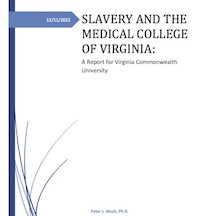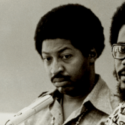 The Medical College of Virginia was established as a separate entity in 1854 from its 1838 roots at Hampden-Sydney College. Its first Black student was admitted in 1951. In 1968, the Medical College of Virginia became part of Virginia Commonwealth University in Richmond.
The Medical College of Virginia was established as a separate entity in 1854 from its 1838 roots at Hampden-Sydney College. Its first Black student was admitted in 1951. In 1968, the Medical College of Virginia became part of Virginia Commonwealth University in Richmond.
In 2021, the Virginia Legislature passed a bill requiring five of the state’s public universities to study their involvement with the institution of slavery. Virginia Commonwealth University released its report late last year.
The report found that the Medical College of Virginia (MCV) remained thoroughly embedded within the institution of slavery from its founding in 1838. Tax lists and census data confirm that MCV routinely owned and/or rented at least between four and eight enslaved laborers each year. They cooked, cleaned, laundered, maintained buildings and grounds, nursed patients, and aided physicians. One enslaved person assisted in the anatomy department and helped to procure cadavers primarily from African-American burial grounds.
The report also found that the board of visitors overwhelmingly consisted of wealthy enslavers. Forced labor contributed to their substantial fortunes. The faculty grew up in privileged circumstances. Enslaved persons managed their households and supported their private medical practices. Professors often conducted clinical research and experimental procedures on African-Americans without their consent.
Michael Rao, president of Virginia Commonwealth University issued a statement when the report was released that read in part: “We are profoundly sorry for MCV’s history with the institution of slavery. It’s important that we be deliberate and thoughtful, as well as compassionate, about our next steps as we continue to reconcile the institution’s past with its present and future. Our next step is to create a special commission to evaluate this report and its findings, and determine our path forward. This is an important time to continue making purposeful changes that reflect the inclusive public university and health system that we are today – and accord respect and dignity to all human beings, present as well as past.”












What else is new? See my book An African American Philosophy of Medicine: Second Edition (2021).(Dorrance Publishers)